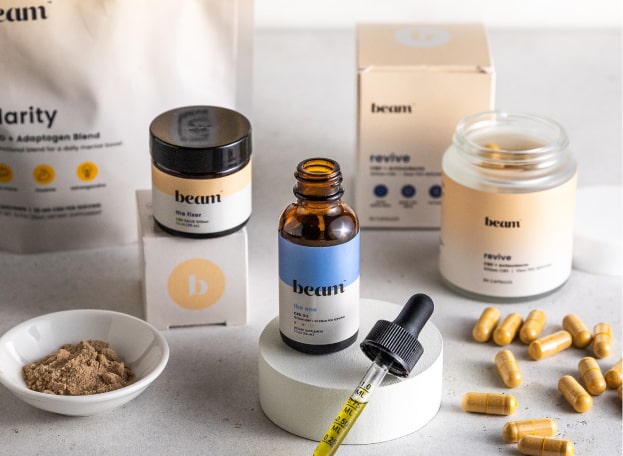Etizolam for Research: Ethical Guidelines and Best Practices
Etizolam is a compound that’s gained a fair amount of attention in recent years, especially within scientific and academic communities. While it’s often associated with its calming effects and occasional therapeutic use, there’s another side to the story: Etizolam as a research chemical. Used properly, it can offer insights into neurology, pharmacology, and drug interaction studies. But conducting research with any psychoactive substance requires responsibility, care, and a strong ethical foundation.
This blog dives into how to approach Etizolam in a research setting. If you’re looking for a clear and human-centered research chemicals guide, this is for you. We’ll explore the Etizolam legal use for research, what ethical responsibilities come with handling such a compound, and how to research with Etizolam safely and effectively.
Understanding Etizolam in a Research Context
Etizolam is a thienodiazepine, meaning it has a similar structure and effect profile to benzodiazepines but is technically a different class. It acts on GABA receptors in the brain, producing calming, sedative, and anti-anxiety effects.
In research environments, Etizolam can be studied for its interactions with neurotransmitters, its metabolism and breakdown in the body, and how it compares with other drugs in the same category. These studies often aim to uncover safer treatment approaches for anxiety disorders, understand tolerance and dependence mechanisms, or assess potential risks of misuse.
But here’s the thing: Etizolam is a psychoactive chemical. That means it comes with responsibilities. Even if the goal is research, there needs to be a clear understanding of its effects and the ethics surrounding its use.
Etizolam Legal Use for Research: Know Your Limits
When we talk about Etizolam’s legal use for research, we’re entering a tricky space. Depending on where you live, Etizolam may be classified differently. In some countries, it’s regulated as a prescription drug. In others, it’s a controlled substance. And in a few regions, it may be unregulated or listed as a research chemical only.
This distinction matters. Just because a chemical is available online doesn’t mean it’s legal to use without proper documentation. Researchers must stay informed about their country’s legal status regarding Etizolam and ensure all activities remain compliant.
If you’re part of a university lab or an independent researcher working with licensed institutions, you should have paperwork in place for how and why you’re using Etizolam. Keep records. Have permits if they are required. Legal clarity is a key part of ethical research.
Ethical Use of Etizolam in Research Settings
Now, let’s talk ethics. The ethical use of Etizolam isn’t just about avoiding trouble. It’s about doing right by the purpose of research. You’re working with a substance that affects brain chemistry. That requires a higher standard of responsibility.
First, understand the risks. Even if you’re not planning on human testing, handling Etizolam comes with implications. Researchers must ensure safe storage, track quantities precisely, and prevent any possibility of misuse or accidental exposure.
Second, never cross the line into personal use under the guise of research. This is not only illegal in many places but also deeply unethical. Research must always serve the greater good of knowledge, not personal curiosity.
Ethical guidelines also mean acknowledging what is not yet known. Be honest about the limitations of your study. Don’t draw conclusions too early or present speculative findings as facts. The goal is transparency and contribution, not self-promotion.
How to Research with Etizolam: Best Practices
Now that we’ve covered the legal and ethical ground, let’s look at how to research with Etizolam in a practical, responsible way.
1. Develop a Clear Protocol
Before you begin, outline every step of your research process. This should include the purpose of your study, how you plan to administer or examine the compound, what tools or tests you will use, and how you will store data. A solid protocol helps you stay on track and ensures repeatability for others.
2. Source from Reliable Vendors
Your data is only as reliable as your materials. Choose a vendor that is transparent about product quality, lab testing, and certification. That’s why platforms like Etizolab.com are becoming go-to sources for serious researchers. Quality and consistency matter.
3. Ensure Proper Storage
Etizolam must be stored in a controlled, dry, and secure environment. Improper storage can degrade the compound and skew your results. It also increases the risk of unauthorized access, which can lead to serious consequences.
4. Use Accurate Measuring Tools
Etizolam is potent. Even small variations in dose or quantity can lead to inaccurate results. Use digital microgram scales and proper safety gear when handling the substance, even if you’re only conducting lab-based studies.
5. Document Everything
Record your observations, your environmental conditions, and any variables that could influence the outcome. This habit is not only vital for your research but also for the integrity of the field at large.
Collaborative Responsibility
It’s not just about individual researchers. Institutions, vendors, academic groups, and labs must work together to uphold the ethical and legal framework for Etizolam’s legal use for research. Creating shared standards helps reduce the risk of misuse and encourages more rigorous science.
This means labs should have clear oversight processes, training modules for staff, and security protocols for handling all psychoactive compounds. Peer review and accountability also play big roles in keeping the research focused and credible.
Why All This Matters
You might wonder: why all this structure for a research chemical? Because real-world outcomes depend on it. Scientific studies influence public policy, health recommendations, and treatment guidelines. If the research is done poorly or irresponsibly, people can get hurt.
The future of pharmacology and mental health care depends on researchers who not only ask the right questions but also handle their tools with care. Following this “Research chemicals guide” ensures that your work is part of the solution, not part of the problem.
Final Thoughts
Etizolam offers valuable insights for researchers studying the brain, anxiety pathways, and drug interactions. But with that opportunity comes a responsibility. Legal compliance, ethical boundaries, and methodological discipline are not optional—they are the foundation of trustworthy science.
So, if you’re wondering how to research with Etizolam, remember this: plan thoughtfully, source responsibly, and always uphold the highest standards. That’s the only way forward if we want our research to truly matter.
At Etizolab.com, we support responsible research with top-quality, lab-tested compounds. You can buy Etizolam online or buy Tapentadol for research purposes, knowing that every order is handled with care and discretion. We are your reliable pharmaceutical store for ethical and professional scientific work.







